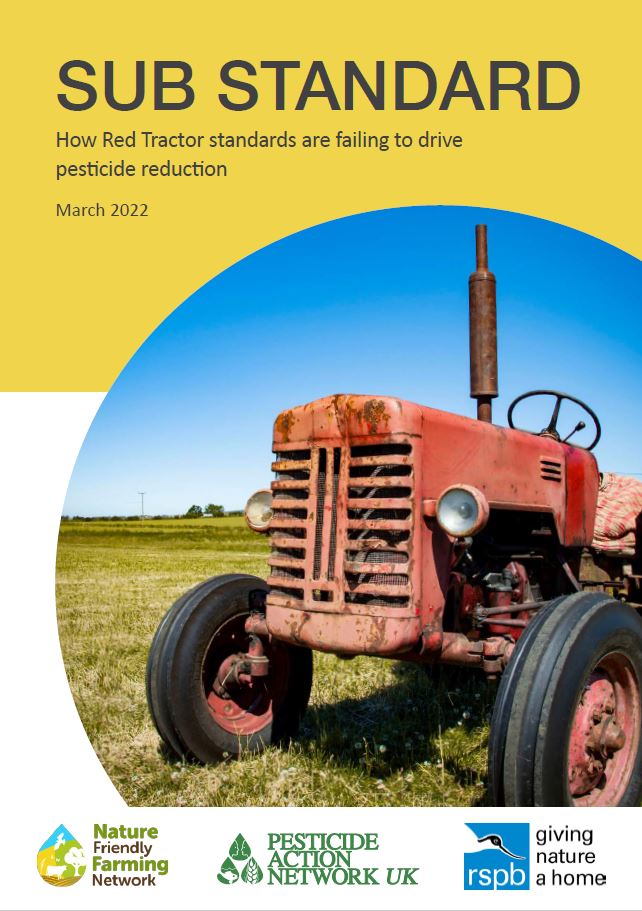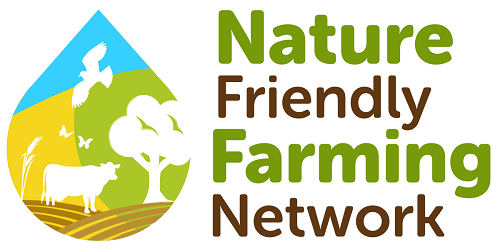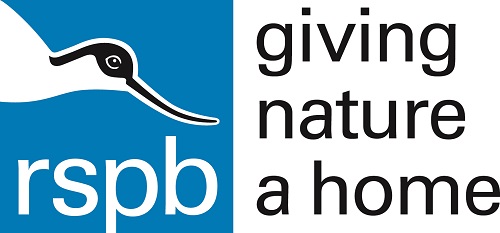Red Tractor standards and pesticides
Red Tractor – the UK’s largest farm and food assurance scheme – has the potential to be a key player in establishing a UK farming system that is less reliant on pesticides. It certifies around 50,000 farmers across the UK and describes its standards as covering ‘animal welfare, food safety, traceability and environmental protection’. Consumers will be familiar with its logo which appears on a wide range of UK produce including meat, dairy and vegetables.
As one of the UK’s most common food standards labels, Red Tractor is viewed by both the general public and many decision-makers as offering some kind of guarantee that food featuring its logo has been grown in an environmentally-friendly way. However, a closer look reveals that Red Tractor standards are failing to drive pesticide reduction and urgently need updating in order to keep pace with the level of environmental protection expected by UK consumers.
Report | Recommendations | Press Release – Farming | Press Release – General
What is the project and what did we find?
PAN UK, the Nature Friendly Farming Network (NFFN) and RSPB have been working together to understand to what extent Red Tractor standards are driving pesticide reduction. We also looked at Red Tractor’s approach to encouraging the uptake of Integrated Pest Management (IPM), a holistic approach to managing pests and diseases in which pesticides are used as a last resort, if at all.
We found that Red Tractor standards had some key omissions including:
- No goals or targets to reduce pesticide use
- No requirement to select less toxic pesticide products
- No clear requirements to limit pesticide use or limit when they are deployed
- No clear requirements to prefer non-chemical methods
- No requirement to make active use of biodiversity for natural biological control
- No requirement to use pest or disease resistant crop varieties
What do farmers and supermarkets think of Red Tractor’s efforts on pesticides?
As well analysing Red Tractor’s standards, we also consulted with two of Red Tractor’s key stakeholders – farmers and UK supermarkets. Martin Lines, co-author of the report, farmer and Chair of the Nature Friendly Farming Network, said:
“Our interviews with Red Tractor certified farmers have revealed that the standards are barely encouraging – let alone supporting – farmers to reduce their pesticide use. There are many UK farmers working hard to switch to using non-chemical alternatives and it’s time Red Tractor, as our largest farm and food assurance scheme, becomes a key player in driving the transition to more sustainable farming systems. Farmers want – and need – their support to work with nature instead of against it.”
Consultations with three of the UK’s largest supermarkets revealed that they see Red Tractor merely as a baseline standard, which offers no guarantees beyond confirming that farmers are sticking to national pesticide laws and regulations. One supermarket staff member said:
“Red Tractor audits continue to focus on old issues such as checking spray records. But the future of farming is moving away from chemical controls and Red Tractor does not appear to be taking account of these changes or even looking at them in any detail. Farming techniques are changing rapidly. Supermarkets have to keep up with the changes but there is a question about whether Red Tractor is keeping up. It appears that Red Tractor suffers from a lock of innovative thinking”.
What are we calling for Red Tractor to do?
We are keen to work with Red Tractor to implement the detailed set of recommendations included in the report. Headline recommendations for Red Tractor include:
- Adapt the requirements of its standard to include a specific focus on pesticide use and hazard reduction and place more emphasis on preventative and non-chemical methods for managing pests, diseases and weeds.
- Introduce a range of measures designed to support farmers to make continuous improvements on reducing pesticide use and adopting holistic IPM based on agroecological approaches.
- Work with other stakeholders within the agriculture industry to drive pesticide reduction and IPM uptake.
- Ensure that any changes to Red Tractor’s IPM requirements and other pesticide-related measures are developed transparently and in collaboration with a wide range of stakeholders including farmers, agronomists, civil society groups and farming organisations.
For a full list of recommendations download the report here.
This project is a collaboration between:




